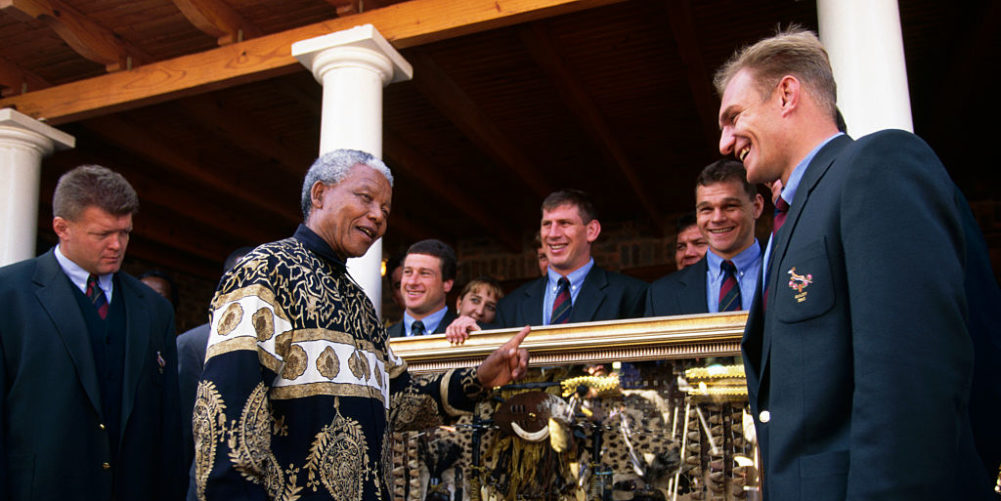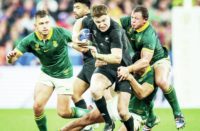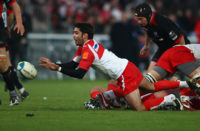Rugby Union has its flaws, but a thin skin is not among them. The game has the hide of an armadillo, allowing it to maintain its high placing among the world's great sports despite the crimes, misdemeanours and stupidities routinely committed in its name.
When we sift through the bundle of prosecution evidence, there are plenty of candidates for the slot marked “Exhibit A”. The inept mishandling of the transition to professionalism takes some beating, as does the continuing refusal of the governing class to recognise that the domestic leagues in England and France are a fact of life rather than a bad dream.
But the winner, by a convincing margin, is the absurd argument, trotted out by players and officials alike and entirely self-serving at its core, that there is “no place for politics in sport”. Try telling that to politics, which, like viral pandemics and dodgy money, recognises no boundaries.
More to the point, tell it to those who recall what happened to the La Plata club in Buenos Aires, one of the leading sides in Argentina, when the generals were running the country, and the paramilitaries were running amok, in the late 1970s.
Claudio Fava, an Italian journalist and politician, tells the story in The Silenced, which has just been published in English. Fava quotes the one surviving member of the team, Raul Barandiaran, as saying that 20 of his colleagues were killed – “gunned down, assassinated, ‘disappeared'” – because of their links to left-wing organisations.
It goes without saying that the fate of the “desaparecidos” cannot be blamed on rugby, but Barandiaran goes on to mention something that punches the sport full in the face. Explaining why none of his gifted clubmates interested the selectors, he states: “Rugby is a right-wing sport in Argentina and we were on the left.”
This is uncomfortable, to say the least, for it adds to a charge sheet that most of us who love our rugby dearly wish did not exist and some do their level best to wish away. Union as the flagship game of apartheid South Africa and collaborationist Vichy France? Union as a pursuit ruthlessly dominated by a privileged elite across vast swathes of its landscape? This inconvenient history should never be forgotten. As a clever man once said, those who fail to remember the past are condemned to repeat it.
At the same time, rugby has had its share of “progressive” moments, as opposed to those of the reactionary kind. The refusal of Graham Mourie, the great All Black captain, to play against the Springboks when they toured New Zealand in 1981 and provoked perhaps the worst outbreak of civil strife ever witnessed in that most stable of nations, was a moral stand rather than a political act in and of itself, but it was loaded with political significance nonetheless.
Mourie was hardly being tested in the same way as those poor La Plata players in Argentina (a country the New Zealander had toured in the mid-1970s, just after the coup that brought the military junta to power, and came to love), but the challenge he faced was far from inconsiderable.
“I'm tired and my mind is working overtime,” he wrote in his diary in the days following his decision to make himself unavailable for selection. “A veritable civil war, a bloodless insurrection of my sense of loyalty against my conscience.”
Fast-forward to 1992 and we find the Wallabies threatening to pull out of their Cape Town meeting with the freshly-reinstated South Africans and head straight to the airport.
A week previously in Johannesburg, where the Boks had re-entered the international arena after years of isolation, the overwhelmingly white audience had unfurled their “old” flags, belted out the “old” anthem and infuriated the African National Congress.
“We wanted to play, but we were not going to stay around if the ANC withdrew their support,” recalled Nick Farr-Jones, the Australian skipper. “So we woke the guys on the Tuesday and said: ‘We're going to training, but pack your bags. If they withdraw their support, we're out of here.' We had a plane waiting for us.
“But there was a great guy… Steve Tshwete. He convinced his colleagues and the ANC to give the crowds, the supporters, one last chance. And that's how we got to play our Test.”
Three years later, ahead of the World Cup final between South Africa and New Zealand, Nelson Mandela walked onto the Ellis Park pitch in a Springbok shirt, thereby making the most resonant statement in rugby history –a statement without words, yet nothing short of deafening.
If ever there was conclusive proof of the intertwining of politics and sport, the president provided it that day. If those who had spent the previous decades arguing that the two were separate never had much of an argument in the first place, they had no argument at all once that day on the highveld was done.
Anyone who still thinks otherwise must also believe the earth is flat.




























Great article Mr Hewitt…our mate Chris Swift, although a round ball enthusiast, would love it but I acan’t get him to read about ‘egg chasing’.
Pingback: ติดเน็ตบ้าน เอไอเอส
Pingback: รับทําโฆษณา Google